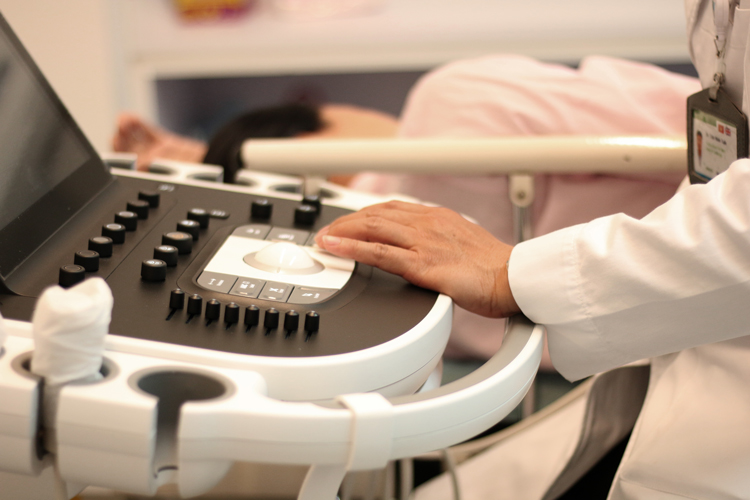The FVH Cardiology Department has just acquired an EPIQ 7C, the latest generation three-dimensional (3D) cardiac ultrasound system that can scan through the chest wall and oesophagus. This is the first new-generation cardiology ultrasound machine in Ho Chi Minh City and it will help physicians to evaluate heart function and make more accurate diagnoses thanks to its exceptional 3D image quality.

Today, unprecedented advances in ultrasound technology help physicians and patients address the need for a speedy, accurate diagnosis right from the first scan. The EPIQ 7C has the most powerful architecture ever applied to ultrasound imaging.
The EPIQ 7C ultrasound machine’s exclusive nSIGHT Imaging incorporates the use of a new precision beam former along with powerful massive parallel processing. Unlike conventional systems that form the image line by line, nSIGHT creates images with optimal resolution down to the pixel level.
The EPIQ 7C cardiology ultrasound technology (4D) helps to provide comprehensive and rapid screening for the heart structure and function, eliminating image slicing limitations of conventional 2D ultrasound scans. The Heart Model feature enables physicians to make comprehensive assessment of cardiac morphology and function in the shortest possible time.
In addition, the Strain Imaging or Strain Rate function allows us to objectively examine the cardiac haemodynamic information and eliminate all possible subjective factors commonly seen when visually evaluating the regional wall motion abnormalities in a conventional way.
EPIQ7 is capable of creating fast and effective image fusion. This new generation of 3D ultrasound system provides reliable results even in challenging diagnostic cases with new, fully integrated fusion capabilities that feature streamlined workflows to allow clinicians to achieve fast and effective fusion of CT/MR/PET with live ultrasound.
By combining imaging modalities directly on the ultrasound system, clinicians now have access to an even more powerful diagnostic tool with advanced visualisation, allowing for fast decisions in comparison to imaging without fusion. This is extremely helpful for cardiovascular interventions in today’s Cath Labs whenever an echocardiogram is needed.
Because of these strengths, the EPIQ 7C 4D Cardiac Ultrasound System is a powerful aid for clinicians in diagnosing and treating cardiovascular diseases, providing the best results for patients.



